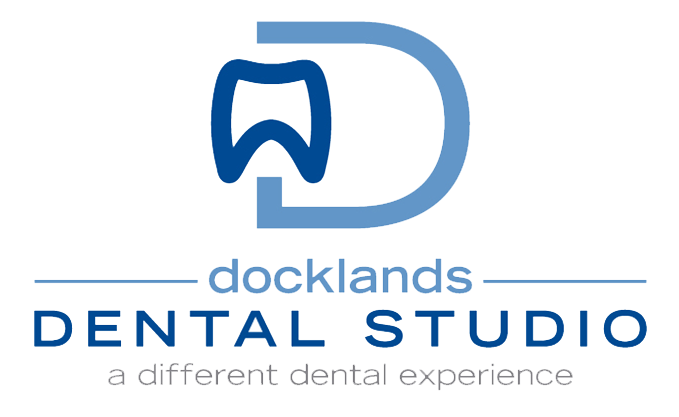It’s January again, which means another year has come and gone. If you are like most adults, you often find yourself reflecting on your habits over the last 12 months, and privately resolving to be healthier in the coming year. Whether it’s too little exercise, too many food indulgences, too much wine, or something else entirely—most of us know there are things we should be doing differently. It turns out that a lot of the healthy behaviors that are good for the body are also good for your oral health, as well. Here are our favorite healthy habits that contribute to overall and oral wellness.

Limit Your Intake of Sugars and Refined Flours
We all know at this point that sweets and sodas are bad for your teeth, as they contribute to bacterial growth and an acidic environment in the mouth, which harms enamel. Refined white flours are just as bad, since starches convert to sugars and they stick to the teeth like nothing else. Too much of these in your diet can not only make you overweight, but also wreak havoc on your pancreas and lead to high blood sugar levels—taking you down the path toward type two diabetes.
But there’s more to the story than just cavities. People who cannot regulate their blood sugar properly have a tendency to develop gum disease more easily. Periodontitis is caused by bacterial invasion of the gum tissue, but leads to chronic inflammation and bleeding of the gums. When insulin levels are not well moderated, this causes glucose levels in the body to spike, which encourages bacteria in the mouth to grow and reproduce. Dry mouth is often a side effect of diabetes, which further aggravates the situation, making oral inflammation worse (dry mouth means less saliva is present to neutralize bacteria). To make matters worse, since gum disease is an infection that causes inflammation, infected gums can cause blood sugar levels to spike.
The correlation between diabetes and gum disease is something of a vicious cycle; high blood sugar can lead to gum inflammation, and gum inflammation can lead to blood sugar levels rising! They just go around and around, making the other disease less manageable.
Since gum disease is a chronic, incurable condition that often leads to tooth loss, it’s worth your while to do everything you can to avoid high blood sugar and type two diabetes. It’s a win for your whole body. Sweets, white flours, and junk food are not the only cause of secondary diabetes, of course. But there are so many good reasons to limit your intake of these foods, that you might think want to think twice next time you reach for a sugary soda or choose white over whole grain bread.
Stay Active and Breathe Through Your Nose
Getting more regular exercise is common goal for many people. Not only can exercise help you regulate your body weight, but it keeps your cardiovascular system strong, helps promote good sleep, and just makes you feel good.
If you are already getting adequate exercise as part of your weekly routine–bravo–but you may want to take note of this next part. A 2015 study published by the Scandinavian Journal of Medicine found that endurance athletes had a greater tendency toward dental caries and enamel erosion. The connection between vigorous exercise and dental problems seems to be connected to two factors: sports drinks and mouth breathing. Most sports drinks are loaded with sugar, unfortunately, so they create a bacteria-friendly environment. If you are breathing heavily through the mouth shortly after drinking sports drinks, you create a drier oral environment, which robs your teeth of the acid-neutralizing benefits of saliva.
Vigorous exercise doesn’t automatically lead to mouth breathing, of course. It is possible to breathe through the nose while jogging, cycling, lifting, or doing other high-intensity activities—but it requires mindfulness. Many athletes don’t make an effort at nasal breathing and get stuck reverting to open-mouth panting in an attempt to take in more oxygen.
The truth is that nasal breathing is better for your body in all situations, not just during exercise. Why? Nasal breathing is a more effective way to oxygenate the blood. Breathing through the mouth may feel like a faster way to take in more oxygen, since the oral passage is wider than the nasal passage–but it robs you of the long slow exhale that allows the lungs to absorb more oxygen. Mouth breathing is also correlated with poor quality of sleep and snoring. Taking the effort to mindfully breathe through the nose can help you sleep better at night and make all your organs function better, as well. Try it!
Drink More Water (And Less of the Things That Aren’t Water)
A few years back, there was a bit of hype surrounding the myth that most of us were “chronically dehydrated” and didn’t know it. If you were ever told you should be drinking eight glasses of water per day, then you probably recall this period well.
Doctors have now come out more vocally to declare that most of us don’t need to consume two liters of water per day to be well hydrated, and that we should simply drink when we feel like it. Today the conventional wisdom is: drink when you feel thirsty, but drink water.
For good oral and overall health, plain water is, and will always be, the best way to hydrate your body. Fresh juices and energy drinks can provide valuable nutrients, but they are also full of sugar. Flavoured sparkling waters may not have sugars, but they typically contain ascorbic acid, which is harmful to your enamel. No one suggests you need to give up your morning coffee or evening glass of wine, but making water your first-choice beverage will go a long way toward maintaining good health.
Limit and Reduce Your Vices
Whether it’s smoking, junk food, gambling, binging on TV and movies, or sitting in front of the computer for hours on end—we all have bad habits we enjoy too much to give up entirely. We know they are not good for us, but we enjoy them too much to stop them outright.
Trying to cut out your vices cold turkey doesn’t work for most people, though. The best thing you can do is reduce and limit the frequency with which you engage in them. If you can successfully reduce how often you partake in these activities, then, over time, you’ll get used to larger and larger intervals. It slowly becomes easier to further reduce them from your life.
Here are some ways your oral health will benefit from reducing (and ultimately removing) these behaviors from your life:
Quitting Excessive Alcohol and Tobacco Products – Both tobacco and alcohol are considered to be mouth irritants. This means that the more you use them, the greater your chances of developing oral cancers. Vaping or using e-cigarettes can also irritate the soft tissues of the mouth, (and the nicotine stains your teeth the same way that cigarettes do). Alcohol and tobacco can also make you more likely to develop gum disease. In fact, smokers often do NOT develop the early warning signs that nonsmokers may notice, such as bleeding gums.
Getting off the Couch/Away from the Computer – Whether you are gaming, watching tv, or surfing the web, long periods of inactivity are bad for your body. They are bad for the circulatory system, and they encourage you to reach for snacks that are convenient, rather than healthy. This leads to poor gum health and encourages the growth of mouth bacteria. Step away from the device, re-engage your mind, and you will find yourself more present and active a participant in making healthy choices.
Quitting Gambling – This may not apply to everyone who gambles, of course, but regular gambling is often a high-stress activity that encourages other compulsive behaviors. Drinking, smoking, teeth grinding, and chewing on non-food items are commonly observed in those who engage in gambling. None of these behaviors are good for the body or the teeth and gums.
Overall and Oral Health Go Hand-in-Hand
Ultimately, it’s good to remember that the things that are good for the body are also good for your oral health. Making small changes can make a big difference in your overall health, and fewer dental problems is a great bonus to these benefits.
If you’d like to learn more about the connections between oral and overall health, visit Docklands Dental Studio. Our dental practice is within a 30-minute commute from North Melbourne or West Melbourne. Take the bus or tram into the city, then hop on Tram Number 11 or 48 from Collins Street towards Docklands; get off at Collins Landing (Stop D17). To schedule your dental visit, please contact our office today online or give us a call at 03 9021 9487.
Also published on Medium.
